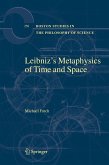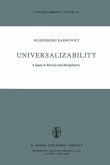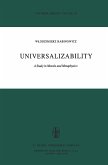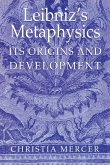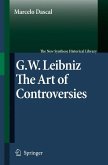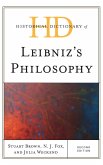Leibniz's notion of possibility is one of his most significant contributions to philosophy as well as one of the cornerstones of his metaphysics. This work attempts to bring out the intrinsic subtlety of Leibniz's approach to possibility and to explore some of its important repercussions in his metaphysics. This project involves an examination of some of the most difficult questions in Leibniz's metaphysics from this vantage point. The book consists of three parts, the first focusing on Leibniz's notion of possibility, the second on his notion of agency, and the third on his notion of individuality. Leibniz's preoccupation with the notions of possibility, agency and individuality is evident in his early writings as well as in his later ones. His combinatorial insights regarding the notion of possibility as a model for creating the world, his commitment to the traditional doctrine that activity constitutes being, and his view that individuals are the only true beings are among theformative and persisting tenets of his metaphysics. This work explores these tenets in some detail and seeks to highlight the connections between them. The first part of the book presents Leibniz's approach to possibility by exposing his early presuppositions about the status and nature of possibilities (chapter 1); his notion of possible individuals (chapter 2); and his notion of possible worlds as constituted by the relations among possible individuals (chapters 3 and 4). The second part discusses the transition from possibility to actuality through the notion of agency.
"This book should certainly be read by scholars interested in Leibniz's philosophy, but also by those interested in metaphysical topics in the history of modern philosophy." (Christian Leduc, Princeton University, British Journal for the History of Philosophy 17:4, 2009)
"What is outstanding about this book is the clear line of analysis connecting Leibniz's views on possibilia in the divine mind with the determinants of contingent simple substances in the actual world. Nachtomy applies a similar analytic approach to the notions of complex substances and living beings, thus unveiling a new systemic configuration of Leibniz's metaphysics and philosophy of nature." (François Duchesneau, Université de Montréal)
"What is outstanding about this book is the clear line of analysis connecting Leibniz's views on possibilia in the divine mind with the determinants of contingent simple substances in the actual world. Nachtomy applies a similar analytic approach to the notions of complex substances and living beings, thus unveiling a new systemic configuration of Leibniz's metaphysics and philosophy of nature." (François Duchesneau, Université de Montréal)
"What is outstanding about this book is the clear line of analysis connecting Leibniz's views on possibilia in the divine mind with the determinants of contingent simple substances in the actual world. Nachtomy applies a similar analytic approach to the notions of complex substances and living beings, thus unveiling a new systemic configuration of Leibniz's metaphysics and philosophy of nature." François Duchesneau, Université de Montréal, Canada


